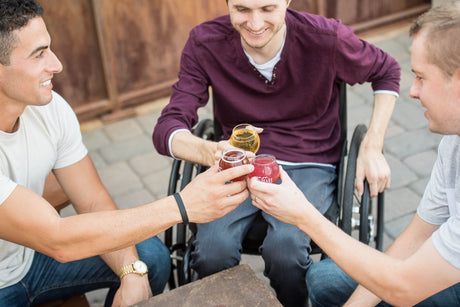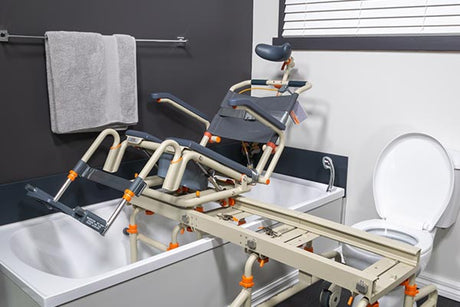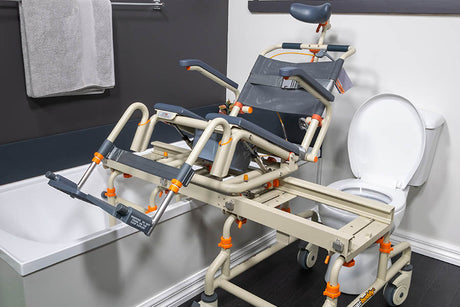For solo downtime, tag team with your partner
This can also be a good way to keep your friendships active – and be out of the house with no one else to worry about.
Seeking the help of the grandparents
If you have grandparents available to help, this is a great place to start. Locally-based grandparents are often the most trusted family members outside of your child’s immediate family, so can be a great choice.
However, before leaving your parents in charge of your child, make sure they have gone through all the typical daily activities of care and know how equipment works. You might need to do this a few times together, as the grandparent becomes confident they can manage care alone.
It’s understandable, therefore, that getting grandparents to help with your disabled child only applies to those who are completely able-bodied themselves. They may have to perform heavy lifts and act quickly in an emergency so elderly grandparents may not be a good idea. As with any changes to the care plan, involve your occupational therapist who’ll be able to ensure your child is in safe hands.
Talking with your occupational therapist about respite support
Occupational therapists’ work covers so many areas of daily life, they quickly become your trusted advisor on matters relating to your child’s care. The OT has an up to date picture of the care plan in place, what your child can and can’t do, and the degree to which they need support each day. The OT isn’t just there to help your child live as high a quality of life as possible, but to give you the support you need to be an effective caregiver.
Speak with your OT as soon as you’re feeling low on energy – it’s a good idea to be well prepared with respite in place well before you burn out and can’t function properly. The occupational therapist will be able to connect you with home care support – and may even incorporate this into the regular plan from the beginning. We know from working with so many families in bathroom mobility that many take it on their own shoulders to be the caregiver all the time. But no one can be expected to take this job on without a break. Ask for some help!
Keeping a schedule around bed times
Bed times can be a process of repetition to train your child’s body clock around rest, but once it’s embedded, you’ll find you’ve earned back evening time to enjoy your partner’s company, watch TV, or even get an early night yourself.

Scheduled bed times might include naps during the day, if your child requires additional rest. Try to resist the temptation of using these sleep times as opportunities to do other chores uninterrupted. Getting daily downtime is more important and if you’re finding it impossible to keep the house in order while caring for your child and getting much deserved rest, it may be worth asking about additional home care.
Commit to a consistent frequency of parent-only times
Like routines around bed times, we need the same discipline around parent-only times. On a daily basis, this may be those evening times after your child is asleep. But your relationship should also get the attention it deserves with more significant outings and socialising with other adults. This is where respite care can be really beneficial; you can go out to dinner without the worry.
Education and activities
Get children engaged in education or programmes
Speak to your health provider about programmes for disabled children to connect with other kids and gain new experiences. Early childhood and school education options for disabled children can also be hugely rewarding for your child. Depending on your child’s mobility impairment, they may be able to participate in a number of activities where they’re looked after by a teacher aide. Beyond the benefits these commitments have to your child, it may also free up some time in the day for you to run personal errands, rest or practice self care (hair and nail appointments definitely count!).
The plan around your child’s education may be part of a wider conversation with the school; if you and your occupational therapist both believe that even some of this learning can be conducted without you around (a very good possibility), then you may be able to add this downtime into your weekly routine, and not simply look for one-off moments of respite every so often.
Occupying the kids with home activities
Disabilities, even those considered particularly significant, need not prevent your child from being included in activities that occupy their attention. If you’ve got other children as well, you’ve got the advantage of having a group activity set up where your disabled child can participate in as much as they can:
- Lying on the floor with your other children playing with toys
- Watching or participating in outdoor games
- Indulging in messy play
- Helping set up for birthday parties
- Listening to music
- Watching a movie
- Reading books
Your other children playing with their disabled sibling rewards them with more connection with their family and allows you some time to catch your breath. Encourage it wherever you can!

Worry and expectations
Don’t worry so much about ‘doing nothing’ at times in the day
Downtime is good for everyone. A mobility impairment can make daily activities more tiring than they might be for others. Don’t feel as though simply relaxing is in any way a problem for your loved one. You may want to schedule in some free or TV time that allows you to take a moment to relax in any way that you can.
Avoid expectations of filling every hour with something each day
A routine or OT plan is designed to make life easier for you and your disabled child. It’s not there to make sure every moment there’s some activity or job to be done. As getting a child into a routine can take a while to get in place, and longer still when changing it up, you may wish to avoid setting a standard of completely action-packed days together. Coaching your child to enjoy downtime is important for their own wellbeing and yours.
Further reading
Further reading on the topic
If you’re interested in learning more about downtime for parents of disabled children, you can find useful information via the following resources:
- How the respite of a Short Break can keep a family together – Special Needs Jungle
- Finding respite care (short breaks) when you look after a disabled child – Scope.org.uk
- Respite supports and services – Ministry Of Health New Zealand




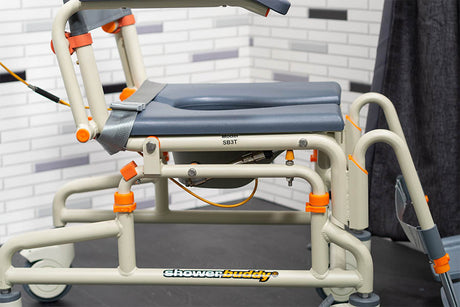
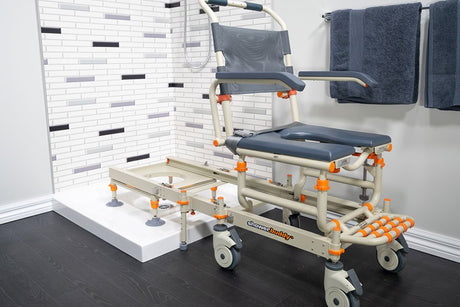

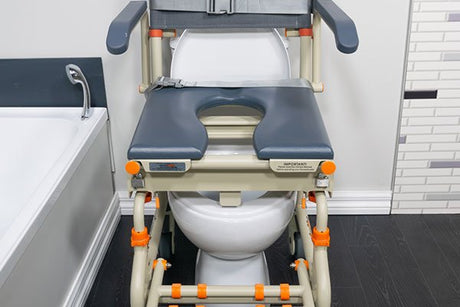


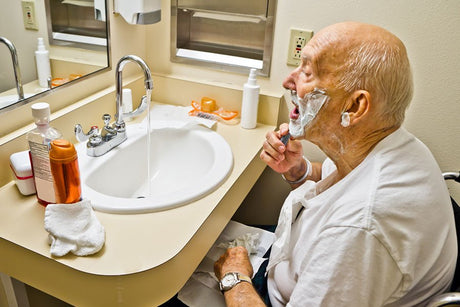

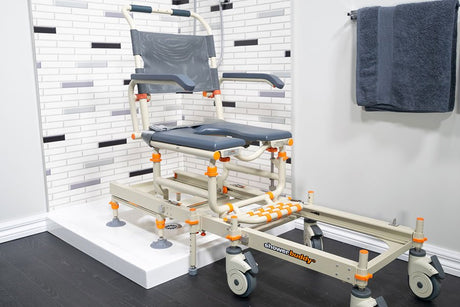

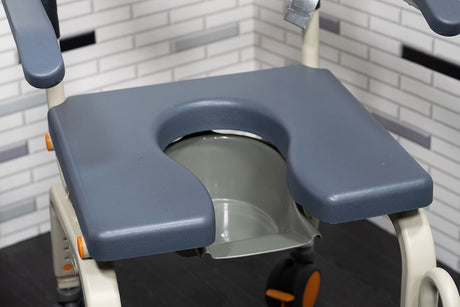



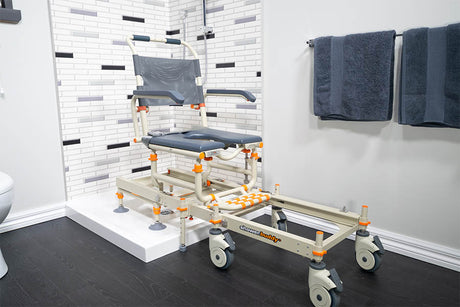



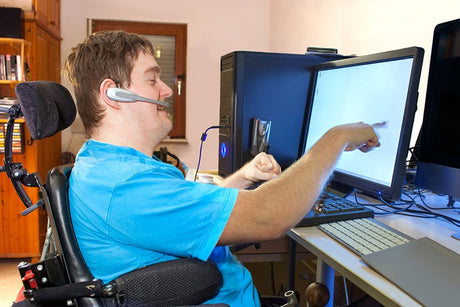


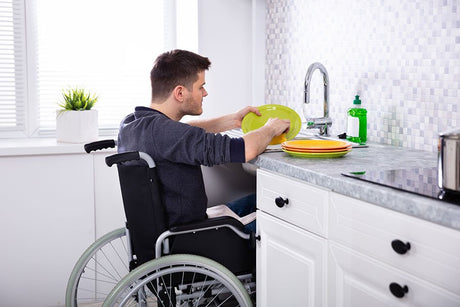
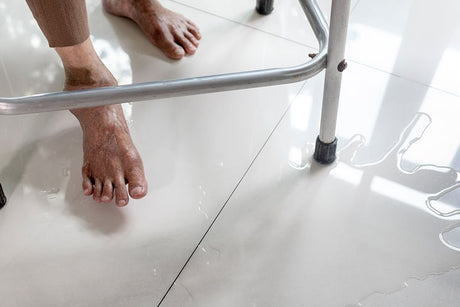
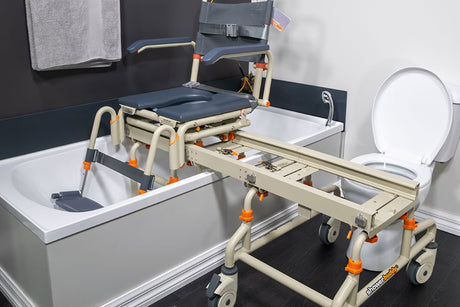
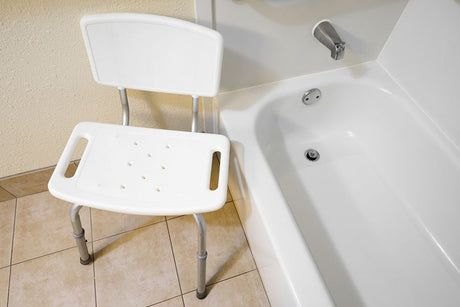
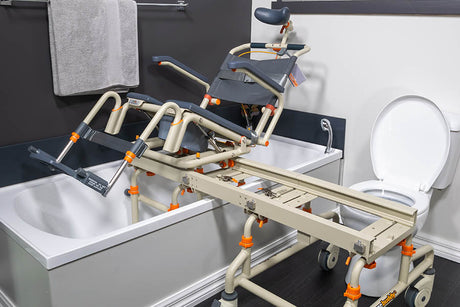
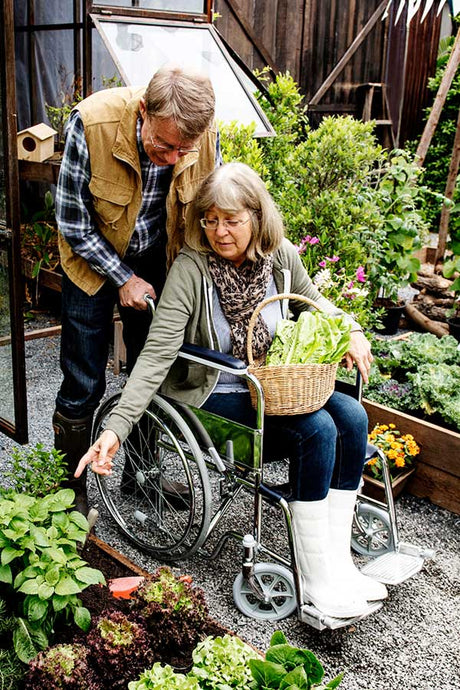
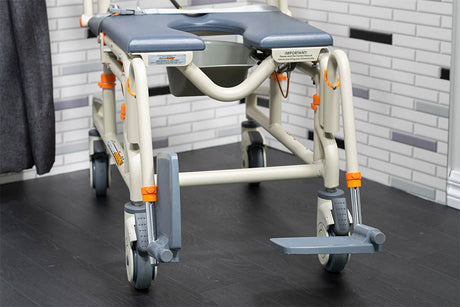

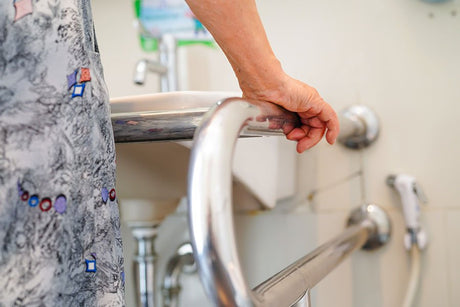


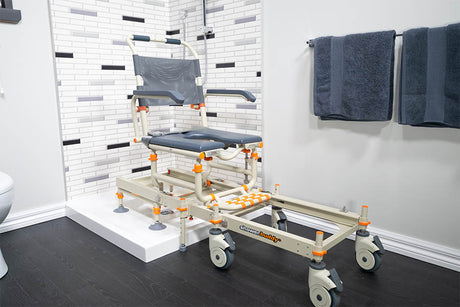
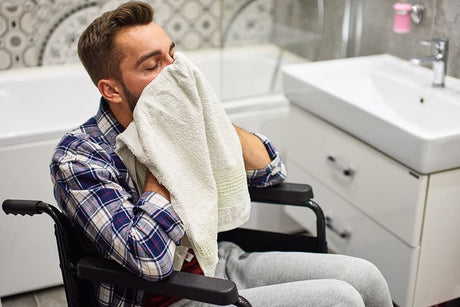
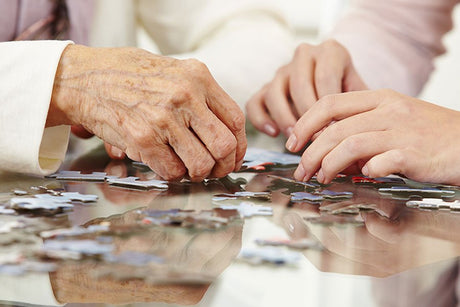



![Toilet Training A Young Child With Mobility Challenges [And How A Shower Chair Can Help]](http://shower-buddy.com/cdn/shop/articles/toilet-training-disabled-child.jpg?v=1699405543&width=460)


